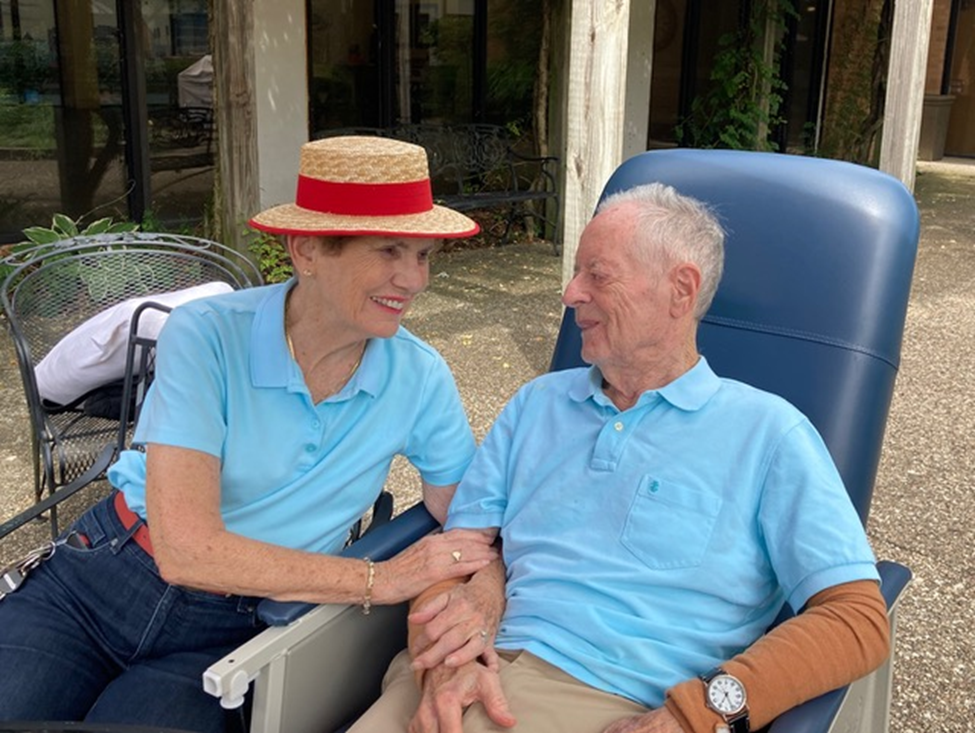This article was written by Sheila Case Benner, whose loved one lived at The Alois Alzheimer Center. Sheila has been a supporter of The Alois Alzheimer Foundation as well. Here is her story:
This year, I spent my first Valentine’s Day in 56 years without my one and only “King Richard” who died in November. Cupid did us a favor back in 1967 and we enjoyed his magic influence ever since.”Better to be lucky than good” as the old adage goes.
However, when my husband, Dick Benner, was diagnosed with Alzheimer’s 7 years ago, we were afraid all the good luck and good times were over for us. Mercifully, we were wrong. Thanks to the loving, friendly, dedicated staff at The Alois Alzheimer Center, we ended up sharing some of the most precious and happy moments in our married life in his final years there. I still have a tough time believing this!
I know that I will forever be filled with love and gratitude for all that the staff at Alois Alzheimer Center did to make that possible. (Alois Alzheimer, if you do not know, was the German psychiatrist and neuropathologist who identified the first case of presenile dementia in the early 1900s, later named after him as “Alzheimer’s Disease”)
The Alois Alzheimer Center, is set on the fringes of Winton Woods in the Greenhills area of Cincinnati. It was opened in 1987 and was the first facility in America to be dedicated solely to the care of those with Alzheimer’s and Dementia. For thirty-seven years, from assisted living and rehab through full-time care, all residents must be diagnosed with dementia issues.
The staff, some of whom have worked there for thirty years, are a singular subset of caregivers who are actually drawn to working with the Alzheimer’s population. This is not a care-giving skill set that can be easily trained. It is definitely a “calling”. Many of them have had family members affected by dementia and this is their way to “give back”.
So, this past Valentine’s Day, it dawned on me that the cards I most wanted to send – the ones that would come straight from my heart, would go to the staff at The Alois Alzheimer Center – these rare, beautiful creatures who clean the hallways, cook the meals, give the baths, brush the teeth, play the music, plan the parties, change the clothes and truly LOVE the likes of my husband. Angels with names like; Bobbie, Lisa, Steve, Sarah, Maria, John. Mellissa, Lindsey, Dawn, Nikki, Larry, Ashley, Michelle, Mary, Jake and Tom, and the dozens more whom I have forgotten. Somehow, they changed years, which arguably should have been the worst ones in our lives, into ones we shall always treasure. May God bless every man jack at Alois Alzheimer Center. “King Richard” and I will always love you. Sheila Case Benner











